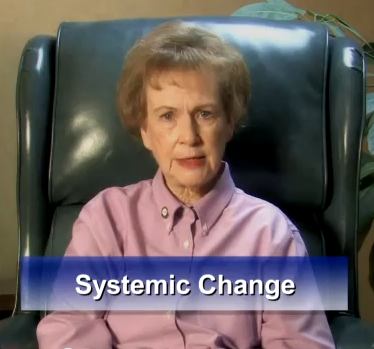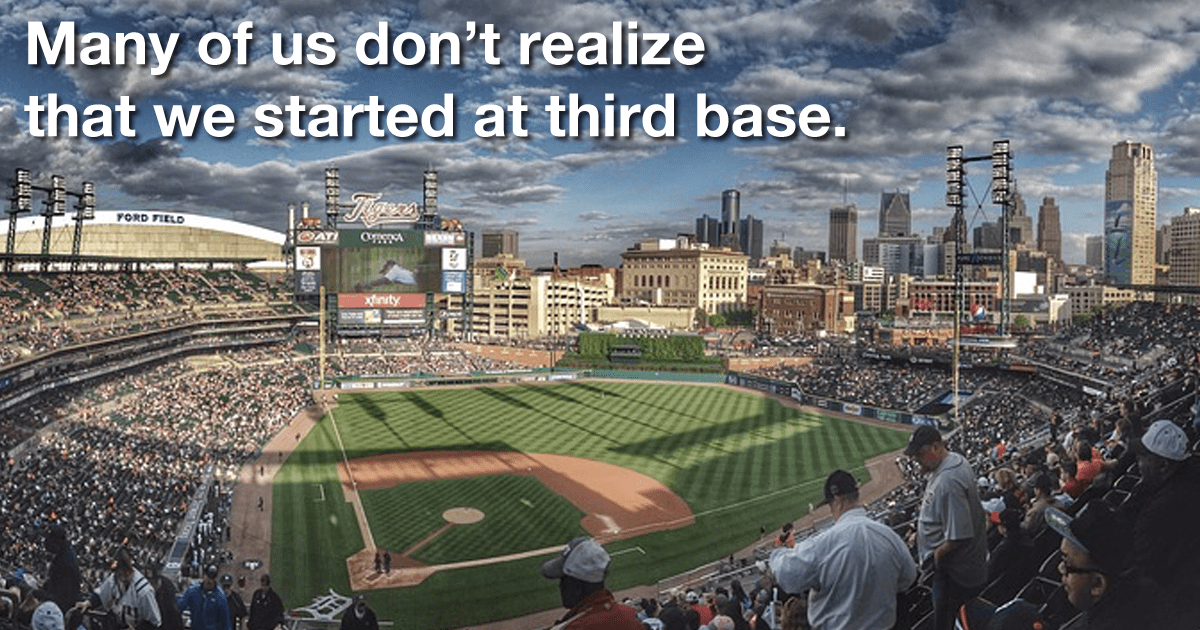The Difference is Often the Resources
 In “The Difference is Often the Resources” Trisha Hannon Smith / The Message speaks of Sheila Gibert’s presentation at a poverty summit.
In “The Difference is Often the Resources” Trisha Hannon Smith / The Message speaks of Sheila Gibert’s presentation at a poverty summit.
She describes the difference between “Getting ahead resources” vs “Getting by resources”:
People who live in poverty generally don’t lack intelligence.
In fact, as Sheila Gilbert, the first woman president of the U.S. Society of St. Vincent de Paul told attendees of the Nov. 29 Diocese of Evansville Poverty Summit, in order to survive in poverty one has to be pretty smart. The difference very often is in the resources.
“Each one of you has an individual story of how you got where you are today,” Gilbert said. “Each person in poverty has a unique story of why they are not sitting here in this room today. We need to listen; there are some commonalities. One commonality is that most of the people in this room have learned to use ‘getting ahead’ resources. People in poverty are experts also, but they are experts at ‘getting by’ resources. They have learned what the systems are, what the methods are, how to develop the relationships in order to be able to live from day to day.”
As part of a five-person panel of speakers on poverty and its effects on the community, Gilbert stressed that much of what determines a person’s success in life depends on the financial, emotional, mental and physical resources present at birth. Using a baseball analogy, Gilbert asked the gathered crowd to imagine a ball park. “You have the parking lot, then the stands. Then first, second, third base and home plate. Many of us don’t realize that we started at third base.
You started at third base if you had a solid family, a good education, people behind you motivating you, financial resources, a dependable car. Our home run is only from third base to home. “I would really encourage you to think about where (you started) in that baseball park. Did you start on third base … second base … first base? Where you at least able to get in? Could you buy a ticket of admission to at least get into the park?
That’s the difference between you and many of the people in poverty. You could get in the park; they could not.” Many may know of the St. Vincent de Paul food bank and thrift store located in Evansville, but Gilbert would like to shine more light on the home visits that Vincentians provide, stressing that multiple visits help build the relationships that can facilitate change. “That’s what is so important to truly helping. During the first visit, people often tell you what they think you want to hear. Pick a family to walk alongside. It’s the consequent visits that make the difference and create trust. It’s the relationships that matter.”
During her presentation at the Summit, Gilbert used a childhood analogy to illustrate the perspective of poverty. “If you remember as a child, you caught grasshoppers in a jar, put grass in the bottom, poked a few holes in the lid and that grasshopper would jump and jump to get out of the jar,” she said. “Eventually, it stopped jumping. When you look at a person who appears to be content to be on welfare and accept public assistance, what you are seeing is a grasshopper that has stopped jumping. It is our job to take the lid off that jar and to give that grasshopper legs with strength to jump.”
There seems to be an examination of conscience built into these thoughts!
- Which resources have you grown up with?
- Were you able to get into the ballpark?
- Is it surprising that grasshoppers stop jumping?
And now for the tough question, the Vincentian question!
- What can I do to help people get into the ball park or out of the jar?
After all, that is what Systemic Change is all about.







0 Comments